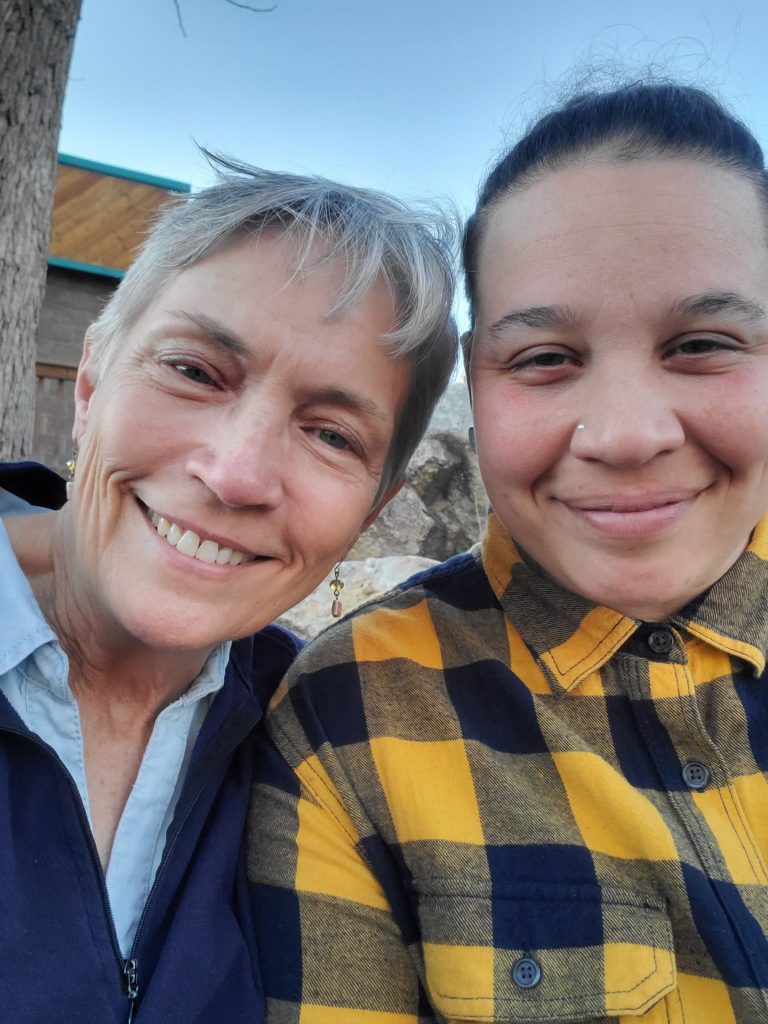Strong Family Alliance provides resources for parents and children navigating the complexities of coming out.
By Abby Hopkins, Photo courtesy of Janet Duke

In the middle of the night, Janet Duke awoke to her 12-year-old daughter, Johanna Duke, standing over her bedside crying.
“I need help,” she told her mother.
They sat for a couple hours until Johanna Duke told her mother she is gay and feared she’d hurt herself. After a long and difficult night, Janet Duke remembers thinking, “Lord, please tell me what to do. Please let her come to me. Don’t let her hurt herself.”
She wanted to love and parent well as her daughter became more public about being gay but struggled to find helpful resources. After years of assisting parents in similar circumstances and speaking publicly about the topic, Janet Duke met women who helped her establish the website and resource she dreamed of creating.
Strong Family Alliance began four years ago as a nonprofit website packed with resources for parents and children about navigating the complexities of coming out. The site contains research-based information, additional resources and parent testimonials.
“The parent I see us working with is probably sleepless at 2 in the morning, and they’re on their computer with a box of Kleenex nearby, trying to figure out what they should know, understand and do,” Janet Duke says.
Even with resources, parents still struggle. According to a study by George Washington University, many parents of children who have come out say even two years later, it is still “moderately” or “very hard” for them to adjust.
Ann Gutierrez*, who considers herself an ally and open-minded person, realized she had a lot to learn and adjust to when her son came out.
“When I ran into the information that Strong Family Alliance had, I felt very guilty at the beginning that I was crying,” Gutierrez says. “Then I realized this is a normal process, that other parents had gone through the same thing. It really helped me to read other parents’ stories and realize that we all struggle with it, no matter how aware or woke we think we are.”
LGBTQ youth rejected by family are 8 times as likely to attempt suicide.
STRONG FAMILY ALLIANCE
Aware of the difficulties, Strong Family Alliance seeks to address common fears and myths with the hope that parents will have guidance about what helps or hurts their children so families can stay intact.
For Amy Fenwick, who came out in her late 20s, the conversation with her mother didn’t go as she hoped and led to a complex relationship for about five years until the world and her mother became more accepting.
“I just didn’t have any resources to talk to her about it. I didn’t have any place to send her,” Fenwick says. “Having a Strong Family Alliance resource, not only to prepare yourself for the conversation with your parents, but also for your parents to go to and learn on their own time, that’s hugely valuable. And that just wasn’t around 15, 20 years ago.”
Janet Duke’s key advice for parents of kids who are coming out is to learn all they can and be forgiving because everyone involved will make mistakes. “Raising her was the most humbling and strengthening thing I’ve ever encountered,” she says of her daughter with tears in her eyes. “She taught me so much about looking at the whole person and not any single characteristic, so much about what it means to love unconditionally.”
The mother and daughter are still close 20 years later, but the journey was not easy. Janet Duke has stood with her daughter in public when she was yelled at, dismissed or ignored, and has deep admiration for how her daughter has consistently handled discrimination.
“It’s not easy to be openly LGBTQ+, even in this day and age,” Janet Duke says. “There’s a lot of negative out there in the press, in government, in individual encounters, but I have so much admiration for her and for all those that try to remain positive and true to themselves.”
*This name has been changed as requested to protect the person’s identity.

